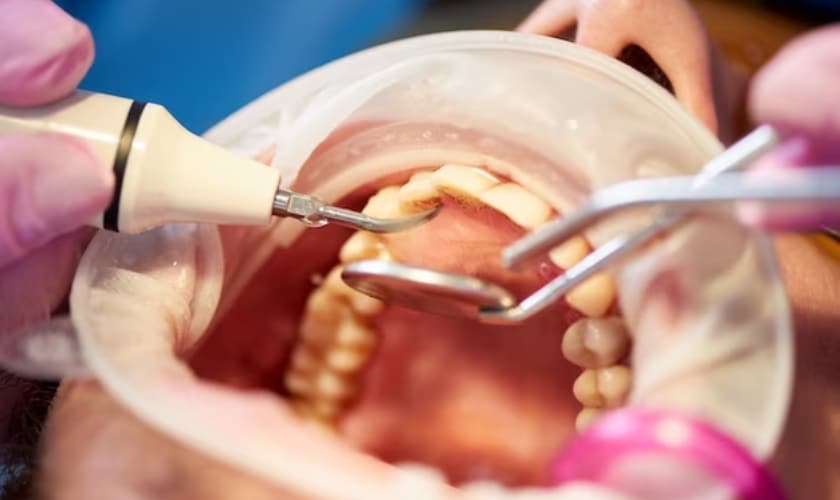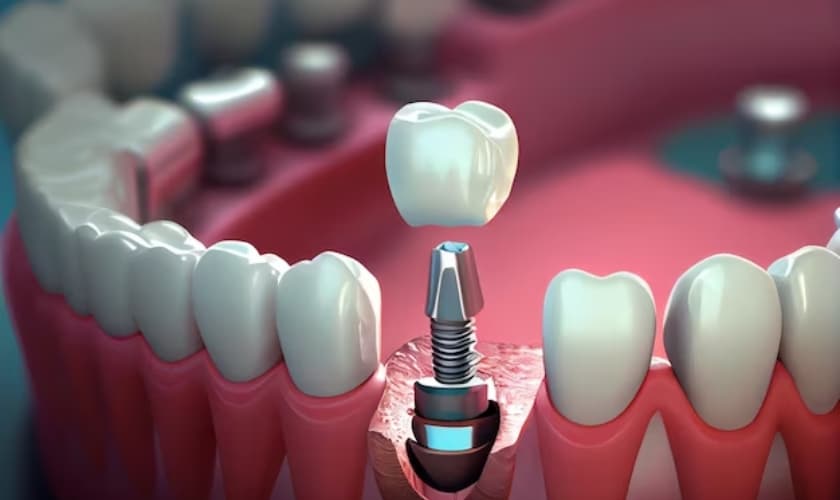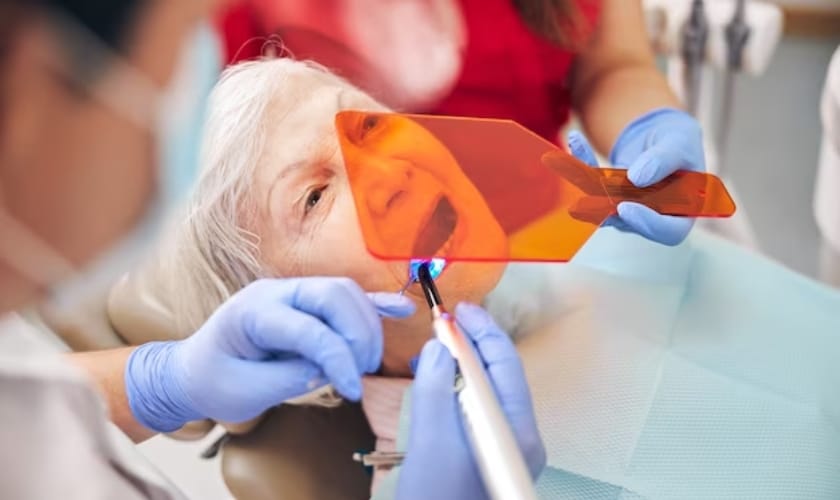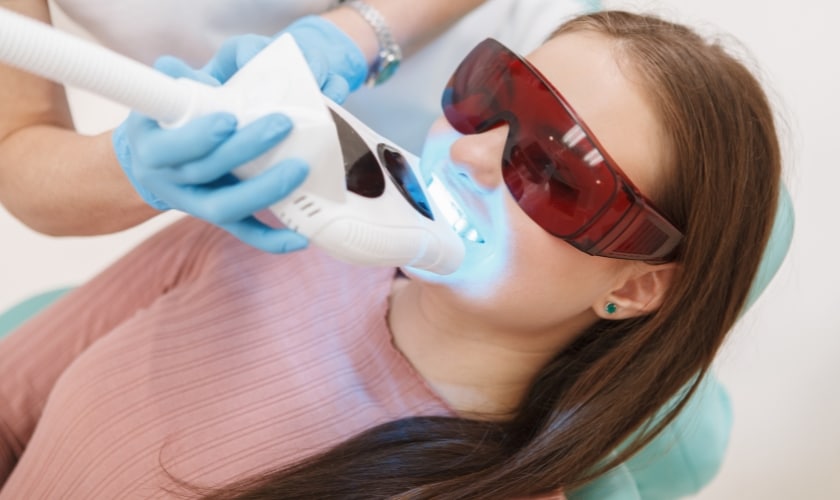Understanding Tooth Decay and Its Impact on Oral Health
Tooth decay is a pervasive issue that can significantly affect one's oral health. It occurs when the enamel of the teeth is damaged by acids produced by bacteria that feed on sugars in the food we consume. Over time, untreated decay can lead to more severe issues, such as infections or the need for tooth extractions if the decay progresses to a point where the tooth is no longer salvageable.
Beyond causing discomfort and potential pain, tooth decay can also affect the overall function of your mouth. Missing teeth can alter bite alignment and lead to additional dental problems. Thus, understanding and preventing tooth decay is crucial for maintaining a healthy and functional smile.
Benefits of Using Invisalign Compared to Traditional Braces
Invisalign treatments offer a modern alternative to traditional metal braces, providing several advantages that appeal to a wide range of patients. One significant benefit is the aesthetic appeal; Invisalign aligners are clear and virtually invisible, making them an attractive option for adults and teenagers who may feel self-conscious about their appearance. Furthermore, these aligners can be removed, allowing for easier oral hygiene and more comfortable eating experiences.
Another key advantage of Invisalign is the use of advanced technology in their design. Custom-made using 3D imaging, these aligners are tailored to fit perfectly and apply gentle, consistent pressure to shift teeth into their correct positions. Patients often find that the entire treatment process with Invisalign is not only faster but also less painful compared to traditional orthodontic methods.
Emergency Care for Damaged Braces
Experiencing damage to braces can be an unsettling situation that necessitates immediate attention. Whether it's a broken wire or a loose bracket, the discomfort can disrupt daily activities and potentially lead to further complications if left unaddressed. Emergency dental care aims to swiftly assess the damage and provide solutions to restore the integrity of the braces and alleviate any pain the patient may be experiencing.
Patients should know that they can reach out to their orthodontist or dentist for urgent repairs. Most practices will try to accommodate emergency cases promptly, recognizing the importance of maintaining treatment progress. In some instances, temporary solutions may be applied until a more thorough repair can be made, allowing the patient to continue their orthodontic journey with minimal interruption.
Factors Influencing Success in Dental Implants
Dental implants have emerged as a popular solution for replacing missing teeth, but not everyone is a suitable candidate. Various factors can influence the success of this procedure, including the density and quantity of the jawbone, the patient's overall health, and their commitment to oral hygiene. A thorough evaluation by a qualified dental professional can help determine if an individual is a good fit for implants and what steps may be required to enhance the likelihood of successful outcomes.
Another consideration in the success of dental implants is the experience of the dental practitioner performing the procedure. Skilled and experienced implant surgeons use advanced techniques and tools to ensure proper placement and integration of the implant into the jawbone. Ongoing monitoring and maintenance post-surgery are also crucial, as they contribute to the longevity and effectiveness of the implant over time.
Expectations After a Root Canal Treatment
Understanding what to expect after undergoing root canal therapy can ease patient anxiety and help them manage their recovery process. Following the procedure, it is normal to experience some discomfort or sensitivity for a few days as the area heals. Dentists usually provide instructions on pain management and care, emphasizing the importance of following these guidelines to promote proper healing.
Moreover, the longevity of root canal therapy can be quite impressive when maintained with good oral hygiene. Many patients find that their treated tooth can last for many years, sometimes even a lifetime, as long as they continue to attend regular dental check-ups. Knowing these expectations can encourage patients to adhere to their aftercare regimen, ensuring the best possible outcomes from their root canal treatment.
Choosing the Right Denture Type for Your Needs
Choosing the right type of denture is crucial for restoring function and aesthetics after tooth loss. Complete dentures are ideal for those who have lost all their teeth, while partial dentures serve well for those who still have some healthy teeth remaining. It is important to consult a dental professional to determine which option is the most suitable based on individual circumstances and needs.
In addition to functionality and appearance, considering the pros and cons of each denture type can aid in making an informed choice. For example, implant-supported dentures offer additional stability but require surgery and a healing period, while traditional dentures may be less invasive. Weighing these factors within the context of personal health, lifestyle, and budget will help patients feel more confident in their decision.
Understanding the Effects of Whitening Treatments
Teeth whitening treatments are becoming increasingly popular as people seek brighter, more radiant smiles. However, it's essential to understand how these treatments can affect the longevity of results. Factors that influence how long whitening effects last include the method used—be it in-office or at-home treatments—and lifestyle choices such as dietary habits and oral hygiene.
Regular maintenance and routine dental cleanings can significantly extend the life of teeth whitening results. Moreover, patients are encouraged to minimize the consumption of staining foods and drinks, like coffee and red wine, to preserve their brighter smile. Knowledge of these aspects can empower individuals to take proactive steps towards maintaining their desired results.
Home Whitening Vs. Professional Treatments: A Comparative Analysis
Deciding whether to pursue at-home teeth whitening or professional treatments can be daunting, as each option comes with its own set of pros and cons. At-home whitening kits, typically more affordable and convenient, allow individuals to achieve brighter smiles at their own pace. However, these kits may not provide results as fast or as dramatic as professional treatments conducted in a dental office, limiting their effectiveness in some cases.
On the other hand, professional whitening treatments are customized to address specific dental concerns, offering faster and more noticeable results. They also involve the supervision of a qualified dental professional, ensuring safety and effectiveness. Understanding the differences between these two approaches will empower patients to select the option that best meets their needs and expectations for oral care.











